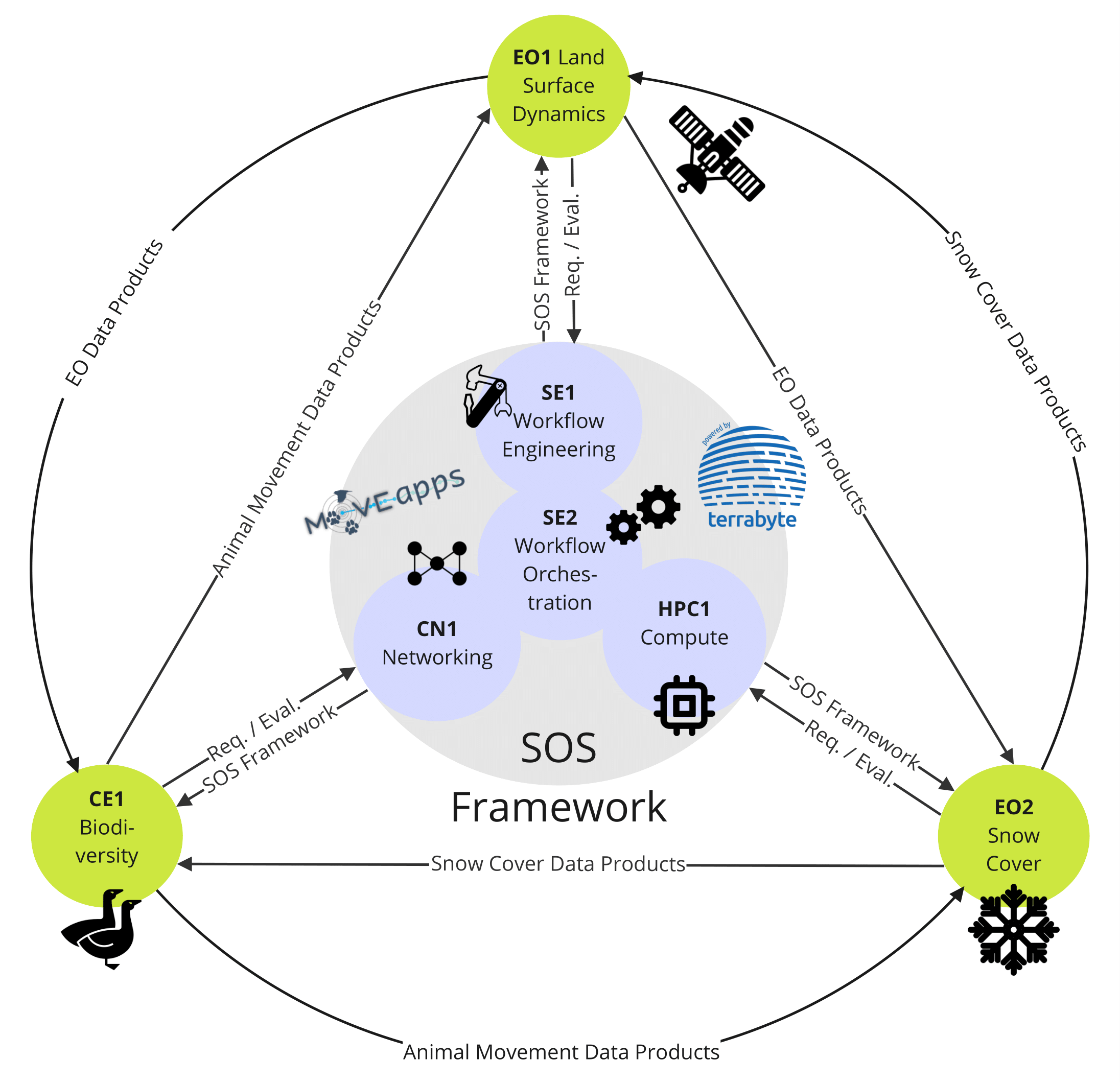We use cookies on this site to enhance your user experience
By clicking the Accept button, you agree to us doing so. More info on our cookie policy
We use cookies on this site to enhance your user experience
By clicking the Accept button, you agree to us doing so. More info on our cookie policy
Modern research in the field of Earth Observation (EO) and sustainability presents challenges for computing, storage, and communication infrastructure required to analyze the vast amounts of data from remote sensing systems. To develop, execute, optimize, and maintain EO workflows, geoscientists need in-depth expertise in IT and data sciences.
Developers face challenges such as:
This leads to limited reusability of workflow implementations and poor reproducibility of results. Furthermore, processing vast amounts of data (petabytes) from distributed and heterogeneous sources presents a significant entry barrier for geoscientists.
The main goal of this research group is to develop a framework consisting of a set of methods, models, and architectures that serve as the foundation for serverless scientific computing and engineering. In serverless computing, computing, storage, and communication resources are abstracted.
We envision a component-based workflow engineering methodology that supports the composition of complex processing workflows from ready-to-use, generic or domain-specific components—without requiring expert knowledge of the algorithms used or their internal implementation details.
We believe these goals can only be achieved through collaboration between computer scientists, geoscientists, and ecologists in an interdisciplinary research environment. To this end, part of the research group is led by geoscientists and ecologists and focuses on the following domain-specific research objectives:
